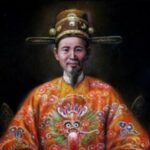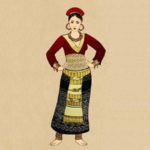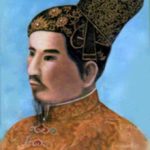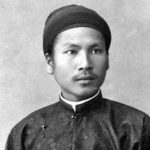The Reluctant King: A Tragic Tale of Emperor Duc Duc
Emperor Duc Duc was the fifth ruler of the Nguyen Dynasty, Vietnam’s last feudal regime.
Established by Emperor Gia Long in 1802, the Nguyen Dynasty enjoyed stability during the reigns of Gia Long, Minh Mang, Thieu Tri, and the early years of Tu Duc. However, the dynasty’s power began to wane with the French invasion in 1858.
Emperor Tu Duc suffered from a childhood illness that left him frail and without an heir, despite having 300 wives and concubines. Unable to produce an heir, he adopted three sons from the royal family, including the future Emperor Duc Duc.
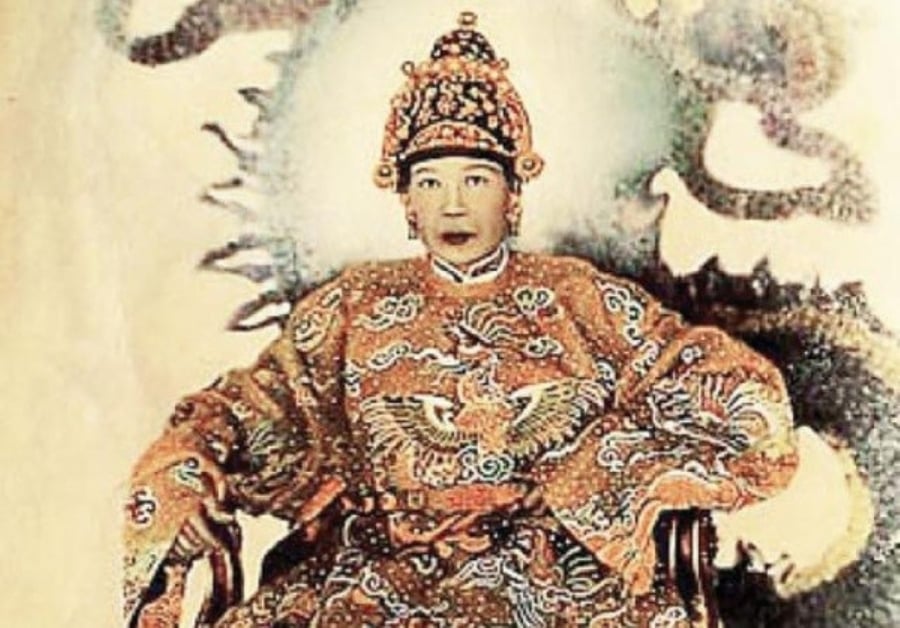
Emperor Duc Duc (1852-1883)
Born in 1852, Duc Duc’s given name was Nguyen Phuc Ung Ai, later changed to Nguyen Phuc Ung Chan by Emperor Tu Duc. He was the second son of Thoai Thai Vuong Nguyen Phuc Hong Y and Tran Thi Nga.
At the age of 17, he was chosen by Emperor Tu Duc as his adoptive son and was provided with a private chamber for his studies. He was placed under the care of Royal Noble Consort Vu Thi Duyen. His place of study later became known as Duc Duc Duong (“Duc Duc Hall”). In 1883, he was bestowed the title of Thuy Quoc Cong (“Duke of Thuy Country”).
According to historical records, Emperor Tu Duc favored his third adoptive son, Nguyen Phuc Ung Dang, the son of Kien Thai Vuong and Nguyen Thi Huong, among the three. However, as Tu Duc’s health deteriorated, Ung Dang was still too young, and the country was facing foreign aggression. Thus, the choice fell to the 32-year-old Ung Chan.
A Three-Day Reign: Duc Duc’s Rise and Fall
In the 36th year of Tu Duc’s reign (1883), as the emperor lay on his deathbed, he summoned his three principal regents—Tran Tien Thanh, Nguyen Van Tuong, and Ton That Thuyet—to draft a will abdicating the throne to Nguyen Phuc Ung Chan.
The regents pleaded with Tu Duc to omit certain negative sections about Ung Chan, but the emperor refused. Following Tu Duc’s death, Nguyen Phuc Ung Chan ascended the throne on July 19, 1883.
Duc Duc had a physical disability affecting his eyes, and he had previously committed some serious offenses. During his coronation ceremony, he instructed Tran Tien Thanh to skim over certain “unnecessary” passages that portrayed him in a negative light.
Although Tran Tien Thanh complied, the other two regents, Ton That Thuyet and Nguyen Van Tuong, intervened. They questioned Tran Tien Thanh and ordered Nguyen Trong Hop to read the will verbatim.
Immediately after the will was read, Ton That Thuyet and Nguyen Van Tuong accused Tran Tien Thanh of forging the document. Just three days later, the two powerful regents submitted a petition to Tu Duc’s mother, Tu Du, outlining four crimes committed by the new emperor, including the alteration of Tu Duc’s will.
Faced with the regents’ immense influence, Tu Du had no choice but to agree to Duc Duc’s dethronement. Thus, just three days into his reign, before he could even proclaim an era name, Duc Duc found himself in grave trouble.
Duc Duc was placed under house arrest at the Duc Duc Duong. The following day, he was sentenced and imprisoned in the Royal Hospital, where a secret chamber was hastily constructed. He was left to starve, and no water was provided. Out of compassion, the guarding soldiers occasionally slipped him some rice balls and a wet rag to suck on for moisture.
In these dire circumstances, he lingered for less than a month before passing away.
Duc Duc’s mother, Tran Thi Nga, was the seventh wife of Thoai Thai Vuong. After her death, she was posthumously honored with the title “Trang Thuan.” During the reign of her grandson, Emperor Thanh Thai (1889-1907), Duc Duc’s seventh son, she was elevated to the position of “First Concubine.”
Her tomb, located in Thuy Xuan Ward, Hue, was recently vandalized by grave robbers in search of gold, according to the Nguyen dynasty lineage.
This was not the first time the tomb had been targeted, despite a lack of historical records indicating the presence of gold, silver, or jewels within.
A Glimpse into the Evolution of Vietnamese Women’s Traditional Attire
The rich cultural heritage of Vietnam is reflected in the diverse and vibrant array of traditional women’s attire. Join Bach Hoa Xanh on a journey through time as we explore the evolution of Vietnamese women’s fashion through the ages. From the elegant ao dai to the vibrant silk tunics, each piece tells a story of tradition, craftsmanship, and the unique beauty of Vietnamese culture. Stay tuned as we unravel the sartorial secrets of Vietnam’s women, offering a glimpse into the past and a celebration of the country’s rich heritage.
























